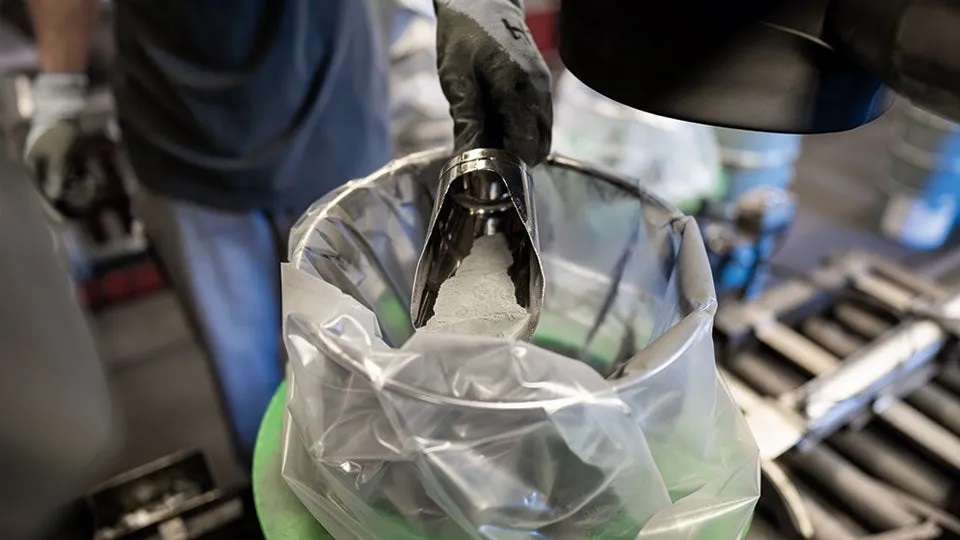Walter indexable inserts made of around 60 percent recycled material
Walter indexable inserts made of around 60 percent recycled material
Good news for machining companies: As they have a high content of recycled tungsten carbide, the CO₂ emissions of Walter's indexable inserts are 36 percent lower than those of indexable inserts made from virgin materials.

Good news for machining companies: As they have a high content of recycled tungsten carbide, the CO₂ emissions of Walter's indexable inserts are 36 percent lower than those of indexable inserts made from virgin materials.
In this way, Walter's indexable inserts play an important part in reducing the CO₂ emissions of the company itself and of its users. The inserts are 58 percent tungsten carbide, which is recovered from recyclable materials. When in use, there is no difference between Walter indexable inserts containing recycled materials and inserts made from virgin materials.
Stefan Rudolf, head of product development at Walter, said, "Walter has set itself ambitious goals for sustainability at the company and for setting up a circular process for recyclable materials. In 2030, our aim is for the recycling rate throughout the entire company to be 90 percent. With our indexable inserts made from recycled materials, we are truly setting the benchmark in the industry."
Protect the environment, safeguard supply chains
However, the establishment of and transition to circular processes for recyclable materials fulfills another strategically important function at Walter: By setting up its own secondary raw materials cycle for critical materials like tungsten carbide, Walter is also safeguarding its supply chains.
In a sophisticated chemical recycling process, the materials are separated into their individual components, which in the next step are turned into new high-quality carbide substrates. These include virgin APT (ammonium paratungstate), the primary intermediate product for tungsten carbide.
Walter currently offers its customers in the USA, Germany, the Benelux region, the Iberian Peninsula, France, Czechia and Italy the option to return their used indexable inserts and solid carbide tools to Walter for recycling. They receive market prices for the materials they send in to be recycled.
This recycling milestone is part of Walter's far-reaching sustainability strategy. The globally active specialist for machining solutions judges all of its business activities by how sustainable they are for the company and the global stakeholders: From development, production and material procurement, through to the responsible use of resources. To this end, the company has been assessed by the sustainability experts at EcoVadis every year since 2020. In 2024, it received the Gold ranking for the third time in a row.





